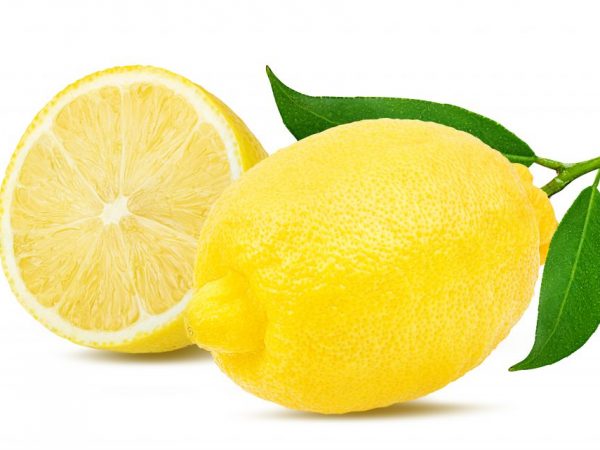Vitamin C content in lemon
Citrus fruits are considered useful in the treatment and prevention of colds. Vitamin C in lemon is found in a record amount among citrus fruits. In addition, the fruit is rich in minerals and trace elements.

Vitamin C content in lemon
The benefits of lemons
Vitamin C (C) is also obtained by the body from other sour fruits (in orange, kiwi). It is necessary for immunity, blood vessels, and the functioning of the nervous system.
With a shortage, scurvy develops. The story of the discovery of the substance is associated with this disease: a medical scientist discovered that it was treated with lemon juice.
The vitamins contained in lemon have important functions:
- A (improves vision, regulates the internal state, as well as the condition of hair, nails and skin.
- B1, B2, B4, B5, B6, B7, B9 (improve the functioning of nerve cells, participate in the formation of blood cells; promotes good blood circulation).
- C (stimulates the immune system, improves metabolism, removes toxins). The vitamin C content in lemon is 30% of the daily intake of an adult.
- E (slows down the aging process, strengthens blood vessels, increases the absorption of A).
- PP (responsible for redox processes).
Daily intake of vitamin
Daily dose: from 45 mg per day (for children from 4 years old) and up to 75-90 mg for people over 19 years old.
Smokers need to get more of this vitamin because one cigarette consumes 20 mg.
In grams, they consume 0.5-1 g of vitamin per day in the treatment of colds, normally - no more than 0.2 g per day. An overdose of a substance is dangerous, as is its shortage. To get 30% of the daily value, the juice of one lemon in a diluted form is enough.
To increase the chances of absorption by the body, it is used in combination with Calcium and Magnesium. Not recommended for use with folic acid, caffeine, iron and B12.
The contained citric acid takes part in metabolism, has bactericidal properties. It is also found in berries and tomatoes.
Mineral composition of lemon

Lemon is good for the human body
Trace elements are beneficial for human health and beauty. Fruit Mineral Table:
| Calcium 40 mg | Magnesium 12 mg |
| Sodium 11 mg | Potassium 163 mg |
| Phosphorus 22 mg | Chlorine 5 mg |
| Sulfur 10 mg | Iron 0.6 mg |
| Zinc 0.125 mg | Copper 240 μg |
| Manganese 0.04 mg | Fluoride 10 μg |
| Molybdenum 1 μg | Boron 175 mcg |
How to preserve nutrients
Lemon contains a large amount of minerals and vitamins, but you need to learn how to maintain beneficial properties. Follow these simple rules:
- Choose natural. If the fruits are smooth, even and shiny, this is a sign that they may contain harmful substances.
- Do not heat. The nutrients in lemon are destroyed, leaving only 50% of their original amount.
- Freezing, contrary to popular belief, does not destroy the composition of the fruit. It is preserved by 90%.
- Dried citrus fruits also do not lose their beneficial properties. The zest is also dried.
It is better to eat the fruit raw without sugar. It is allowed to add a slice to tea or coffee at a temperature of 40 ℃.
Conclusion
Vitamin C is abundant in lemon.It strengthens the immune system, is antimicrobial and bactericidal.
However, the acid of the fetus adversely affects the enamel of the teeth, it can cause allergies. To eat a slice and get the most of its nutrients, do not expose it to high temperatures. The vitamin C content in lemon is definitely less than in red pepper, so you should not lean on citrus fruits alone.


